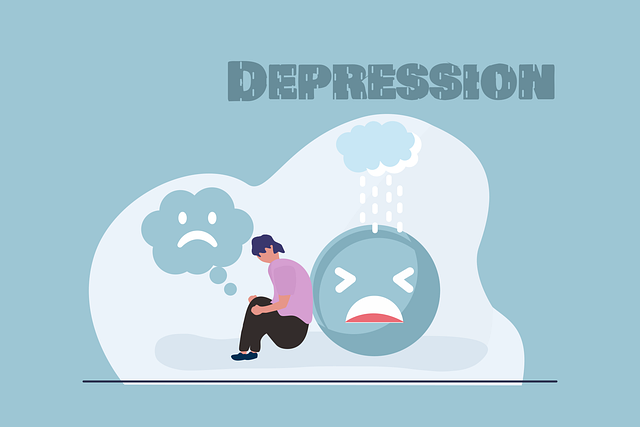Evaluating mental wellness programs, like the Louisville Grief Counseling Therapy, is crucial for informed improvements. By combining quantitative data (attendance rates, client satisfaction scores, clinical symptom changes) and qualitative surveys, professionals gain a holistic understanding of program influence on well-being. Well-defined Key Performance Indicators (KPIs), such as reduced anxiety levels and increased job satisfaction, enable data-driven decisions to enhance tailored practices for clients and practitioners. Participant surveys with structured questionnaires provide first-hand accounts, facilitating comprehensive analysis of Louisville Grief Counseling Therapy's impact.
Mental wellness programs require robust evaluation methods to ensure their effectiveness and impact. This article explores three key approaches used to assess the success of initiatives like Louisville Grief Counseling Therapy. We delve into defining key performance indicators (KPIs) and designing participant surveys to measure program impact. Additionally, we discuss the power of case studies in storytelling and tracking client outcomes, as well as the importance of stakeholder feedback and community engagement for continuous improvement.
- Assessing Program Impact: Metrics and Surveys
- – Defining key performance indicators (KPIs) for mental wellness programs
- – Designing and distributing participant surveys to gauge program effectiveness
Assessing Program Impact: Metrics and Surveys

Evaluating the impact of mental wellness programs is a crucial step in understanding their effectiveness and making informed improvements. Metrics play a significant role here, offering quantifiable data on various aspects of program participation and outcomes. These could include measures like attendance rates, client satisfaction scores, or changes in clinical symptoms over time. For instance, a Louisville Grief Counseling Therapy program can assess the impact by tracking the number of clients who complete the program and their subsequent ratings of grief management skills.
Surveys are another powerful tool for gauging program success. They allow participants to provide qualitative feedback on their experiences and perceived benefits. This data can reveal valuable insights, such as improvements in social skills following training or increased job satisfaction related to burnout prevention workshops. By combining quantitative metrics and qualitative surveys, mental health professionals can gain a comprehensive understanding of how their programs influence the well-being of clients, ultimately informing future program development and ensuring they meet the evolving needs of Louisville’s community.
– Defining key performance indicators (KPIs) for mental wellness programs

Evaluating mental wellness programs requires a strategic approach, and one of the cornerstone methods is setting clear Key Performance Indicators (KPIs). These KPIs serve as measurable benchmarks to assess the effectiveness and impact of Louisville Grief Counseling Therapy services. For instance, a KPI could be the reduction in anxiety levels among participants over a defined period, offering a quantifiable measure of Anxiety Relief.
Additionally, considering metrics related to client satisfaction and retention can provide insights into the program’s overall success. Well-defined KPIs facilitate data-driven decisions, enabling mental health professionals to tailor their practices. This is particularly relevant when coupled with Risk Management Planning for Mental Health Professionals, ensuring not only the program’s efficacy but also the safety and well-being of both clients and practitioners.
– Designing and distributing participant surveys to gauge program effectiveness

One effective method for evaluating a mental wellness program, such as Louisville Grief Counseling Therapy, is through participant surveys. These tools allow individuals who have undergone the program to share their experiences and perspectives on its effectiveness. By distributing well-structured surveys, organizers can gather valuable insights into what aspects of the program were beneficial, areas that need improvement, and overall satisfaction levels. This data provides a comprehensive view of the program’s impact, helping to identify successful strategies and potential challenges.
The surveys should be designed with care, including questions related to various components of the program like Crisis Intervention Guidance, Trauma Support Services, and Stress Reduction Methods. Open-ended questions can prompt participants to share specific examples and anecdotes, while multiple-choice options offer quantifiable data for analysis. This dual approach ensures a holistic evaluation, enabling therapists and counselors to understand the program’s reach and impact on participants’ mental wellness journeys.
Evaluating the impact of mental wellness programs, such as Louisville Grief Counseling Therapy, is essential for understanding their effectiveness. By defining key performance indicators (KPIs) and utilizing participant surveys, organizations can gather valuable insights into program success. This data allows for continuous improvement, ensuring services meet the needs of those seeking support. Through thoughtful assessment methods, mental health initiatives can be optimized, leading to better outcomes and enhanced well-being for participants.














